Speech…Speech…Speech…
” My speech today is that I am leaving”
Brand is GOing Beyond US as Walmart’s executive vice president of global governance and corporate secretary.

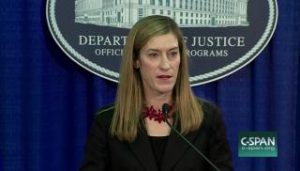
MEET THE ASSOCIATE ATTORNEY GENERAL
Rachel L. Brand was sworn in as Associate Attorney General on May 22, 2017, after confirmation by the Senate. As Associate Attorney General, she serves as the third-ranking officer in the Department of Justice and oversees the following Department components: Antitrust Division, Civil Division, Civil Rights Division, Environment and Natural Resources Division, Tax Division, Executive Office for U.S. Trustees, Office of Justice Programs, Community Oriented Policing Services (COPS), Office on Violence Against Women, Community Relations Service, Office of Access to Justice, Office of Information Policy, Foreign Claims Settlement Commission, and the Service members and Veterans Initiative. She also serves as the Department’s Regulatory Reform Officer and chairs the Regulatory Reform Task Force.
Prior to becoming Associate Attorney General, Ms. Brand had a diverse legal career in public service and outside of government. From 2012 – 2017, she has served as one of five Senate-confirmed Members of the Privacy and Civil Liberties Oversight Board, appointed by President Obama. In that capacity, she provided advice and oversight to U.S. counterterrorism agencies to ensure that privacy and civil liberties are balanced with national security objectives.
Ms. Brand previously served in the Department of Justice from 2003 – 2007, first as the Principal Deputy Assistant Attorney General for the Office of Legal Policy, and then as the Senate-confirmed Assistant Attorney General for Legal Policy, appointed by President George W. Bush. In that capacity, Ms. Brand served as chief policy adviser to the Attorney General, handling a broad range of national security, law enforcement, and civil justice issues. She also oversaw the development of all regulations promulgated by the Department of Justice and managed the Department’s role in selecting federal judges, including running the confirmation process for Chief Justice John G. Roberts and Associate Justice Samuel Alito. Earlier, Ms. Brand was an Associate Counsel to President George W. Bush in the White House.
Outside of the federal government, Ms. Brand has been an Associate Professor of law at George Mason University’s Antonin Scalia Law School, an adjunct professor at George Washington University Law School, and a lawyer in private practice in Washington, D.C.
She served as a law clerk to Associate Justice Anthony M. Kennedy of the Supreme Court of the United States during the 2002 – 2003 Term and to Justice Charles Fried of the Supreme Judicial Court of Massachusetts. Ms. Brand graduated from Harvard Law School, where she served as deputy editor-in-chief of the Harvard Journal of Law and Public Policy, and earned a B.A. from the University of Minnesota-Morris.
See photos of the Associate Attorney General’s swearing in ceremony.
“Thank you”…NO Thank you…Baseball U Bet…
February 15, 2018
“Thank you, Dean, for that introduction. It’s a pleasure to be here with the Federalist Society, and in particular to speak to the DC lawyers chapter.
These monthly lunches in Chinatown have become a Washington institution, and I’m honored to be included in your line-up.”
February 2, 2018
“Thank you, Patrick, for that introduction, and thanks to all of you for joining us to grapple with the civil rights crisis of human trafficking.
Human trafficking is often referred to as modern-day slavery. Trafficking victims are denied their freedom. They are forced to live at the mercy of their traffickers and often endure horrific psychological and physical abuse. They are treated as commodities that can be bought, used, and sold not just once, but over and over.
Combatting this evil is one of our top priorities at the Justice Department. As you will hear throughout the day, we are tackling it with our law enforcement tools, our financial resources, and our partnerships with state and local law enforcement, industry, service providers, and the public.”
January 16, 2018
“Thank you, Jessica, for that introduction, and thank you to the audience for being here.
It’s an honor for me to be here with Deputy Director Gordon and Secretary Wilson – two strong leaders in this Administration’s efforts to defend national security and homeland security.
My focus today will be on another type of security – Americans’ safety from crime and violence. Like national security, public safety is necessary to our ability to enjoy economic prosperity and all the freedoms we have as Americans.
Under the President’s leadership, the Department of Justice is working with our partners in state and local police forces to keep Americans safe from all types of crime.”
Speech
October 3, 2017
“Thank you, Elizabeth, for that warm introduction. And thank you to the American Gaming Association, the National Indian Gaming Association, and the National Indian Gaming Commission for hosting this important event. It is an honor to be here.
I’d also like to thank the many current and former state, local, tribal and federal law enforcement officials who have joined us today. Thank you for your service and the work you do every day in your communities.
We are gathered today in a community that is reeling from the deadliest mass shooting in our memory. Dozens of families are mourning the sudden loss of a loved one, and hundreds more are at the bedsides of the wounded.
We cannot imagine what they are going through. We cannot imagine what would lead someone to commit this “act of pure evil,” as the President called it. But we can and will come together to support the victims and their families in every possible way. I hold them in my prayers and ask God to grant them strength and comfort”…
…”Turning to the subject of today’s summit, I’d like to thank you again for inviting me to speak about this critical issue. Human trafficking has become a civil rights crisis that we cannot ignore”…
NY Times
After 9 months on the job two people say:
No. 3 Official at the Justice Department Is Stepping Down
(and Carrie Gunn is leaving as well)
WASHINGTON — Rachel L. Brand, the No. 3 official at the Justice Department, plans to step down after nine months on the job as the country’s top law enforcement agency has been under attack by President Trump, according to two people briefed on her decision.
Ms. Brand’s profile had risen in part because she is next in the line of succession behind the deputy attorney general, Rod J. Rosenstein, who is overseeing the special counsel’s inquiry into Russian influence in the 2016 election. Mr. Trump, who has called the investigation a witch hunt, has considered firing Mr. Rosenstein.
Such a move could have put her in charge of the special counsel and, by extension, left her in the cross hairs of the president.
Ms. Brand, who became the associate attorney general in May 2017, is leaving for a job as general counsel in the private sector. She has held politically appointed positions at the Justice Department over the past three presidential administrations.
In her current job, she reports directly to Mr. Rosenstein and Jeff Sessions, the attorney general, who has recused himself from the Russia investigation.
Mr. Trump in recent weeks has escalated his criticism of the department for its handling of the inquiry and suggested that top law enforcement officials should face consequences for conduct he called “a disgrace.”
The release last week of a contentious Republican memo that accused the Justice Department and the F.B.I. of political bias raised new questions over whether Mr. Trump might seek to oust Mr. Rosenstein, who appointed the special counsel, Robert S. Mueller III.
Ms. Brand now oversees a wide swath of the Justice Department, including the civil division, the civil rights division and the antitrust division. She helped lead the department’s effort to extend a law that authorizes the National Security Agency’s warrantless surveillance program.
In an op-ed article in The Washington Post, Ms. Brand argued that the law “has been valuable and effective in protecting the nation’s security” and that law enforcement officers would be “at risk” without it. Congress voted to extend that law, Section 702 of the FISA Amendments Act, last month.
On Friday, Ms. Brand hosted a summit meeting at the Justice Department on human trafficking. At that event, Mr. Sessions thanked her for her “strong leadership as our third in command at the department.”
But Ms. Brand has also become embroiled in the feud between the president and the nation’s law enforcement agencies. Reports that Mr. Trump had tried to fire Mr. Mueller and had considered firing Mr. Rosenstein raised questions of who would replace Mr. Rosenstein.
Ms. Brand’s assistant, Currie Gunn, has also left the department. Ms. Gunn could not be reached for comment.
Looks like Brand which is Beyond US missed a phone #. How could it be…
From Fox News:
Obama’s NSA rebuked for snooping on Americans; journo says it proves wide pattern
The secret court that oversees government snooping took the Obama administration to task late last year, suggesting it created “a very serious Fourth Amendment issue” by violating rules the government itself had implemented regarding the surveillance of Americans.
According to top-secret documents made public by the Foreign Intelligence Surveillance Court – often referred to as the FISA court – the government admitted that, just days before the 2016 election, NSA analysts were violating surveillance rules on a regular basis. This pattern of overreach, coupled with the timing of the government’s disclosure, resulted in an unusually harsh rebuke of the administration’s practices and principles.
A former CBS journalist suing the federal government for allegedly spying on her said the documents prove the illegal snooping was pervasive and widely abused.
NSA collected 151 million phone records in 2016, despite surveillance law changes
In 2016, the National Security Agency collected more than 151 million records about Americans’ phone calls, despite Congress passing a law the previous year — the USA Freedom Act — intended to curb bulk surveillance. These records are comprised of metadata about calls (which includes time, duration, and the numbers of both recipient and caller) and their collection was revealed in an annual transparency report, published on Tuesday by the Office of the Director of National Intelligence.
And now for all U Walmart shoppers out there…An Advertisement for the numerous uses of Shey Butter…GO figure…

The first woman to serve as associate attorney general leaves after 9 months according to two people. Looks like #3 is not GOing to be #2 and is going to miss the whole K Street thing. Maybe…Maybe not…
“Anyone who actually knows me knows that had nothing to do with my departure,”
From Fox News:
Top DOJ official Rachel Brand fires back at claims she bolted over Mueller probe concerns
Former top Justice Department official Rachel Brand, in an exclusive interview with Fox News, pushed back strongly at speculation she left the Trump administration over concerns she could have been tapped to oversee the Robert Mueller Russia probe.
“Anyone who actually knows me knows that had nothing to do with my departure,” Brand told Fox News on Tuesday.
Brand spoke with Fox News during her last afternoon as associate attorney general, the No. 3 DOJ post. She recently made the surprise announcement that she’s stepping down to take a position as Walmart’s executive vice president of global governance and corporate secretary.
The move spurred anonymous-source speculation that she’s leaving in order to avoid the possibility of getting caught up in the internal politics of the Russia investigation – namely, being thrust into the role of Mueller’s keeper if Deputy Attorney General Rod Rosenstein were to be pushed out.
RACHEL BRAND, NO. 3 OFFICIAL AT DOJ, IS STEPPING DOWN
Brand, however, stressed that she’s leaving only to take a job “most lawyers would dream their whole career about taking.”
‘I never had any reason to think that the Mueller probe would come to me.’
– Rachel Brand
“These kind of jobs come along maybe once in a career, and when they come along it might not be the perfect timing for you, but you have to take the opportunity when it comes,” she said.
Brand bristles at some of the reports about the circumstances of her exit.
“I never had any reason to think that the Mueller probe would come to me, and even if it had, it has nothing to do with why I left the department,” Brand said. “… This was about seizing an opportunity, not about leaving DOJ.”
Brand, the first woman to serve as associate attorney general, built an impressive resume by the time she was nominated for the post by President Trump.
She has held senior titles inside the Department of Justice during three presidential administrations. After helping to represent former President George W. Bush during the 2000 presidential election recount in Florida, she served as an assistant attorney general for the Office of Legal Policy. In 2012, Brand was appointed by former President Barack Obama to serve on the Privacy and Civil Liberties Oversight Board.
But her tenure in the Trump administration came with unavoidable questions about the direction of the Russia probe.
Mueller presently is supervised by Rosenstein, since Attorney General Jeff Sessions recused himself from the Russia investigation last year. But as Trump has fumed over the investigation – typically via Twitter – lawmakers have warned about the possibility he could oust Rosenstein.
If Rosenstein were to go, Brand would have been next in line to supervise the case.
A source close to Brand inside Justice headquarters, though, scoffed at the idea that she was “overwhelmed,” as one report suggested.
“If she really wanted to leave DOJ, she wouldn’t uproot her whole family to Arkansas, she could have easily found something closer to home,” the source said.
Still, Trump has made a habit of attacking the Department of Justice, including the attorney general and the FBI, during his first year in office — leading many to worry about morale at the department. He renewed that pressure on Wednesday, questioning on Twitter why Sessions isn’t looking at “Dem crimes” amid the Russia probe.
However, Brand told Fox News she believes morale inside the department is high and the workforce is “committed to the mission.”
When pressed to comment on the rocky relations between the White House and DOJ, Brand told Fox News, “I think that the overwhelming majority of the DOJ workforce does a pretty good job of tuning that out.”
Looking back at her lengthy DOJ career, Brand said she sees the push for the reauthorization of Section 702 of the Foreign Intelligence Surveillance Act as one of her key victories.
“On the night of the cloture vote in the Senate, it was extremely tight, we had to get to 60 votes,” Brand recounted. “The floor was held open for hours because we needed that 59th and 60th vote and to work closely with [Director of National Intelligence Daniel] Coats … was an incredible honor and a pleasure.”
The reauthorization “was a huge win for the intelligence community and for all Americans.”
Brand also pointed to her work during the George W. Bush administration getting Justice Samuel Alito confirmed to the Supreme Court as another highlight.
“The kind of work we do here is amazing. It’s very fulfilling. It’s really important,” she said.
“Of course I will miss my colleagues here at the department,” Brand said. “I wrestled with leaving, because I do enjoy this work so much … but I’m also excited about my next chapter.”
Jake Gibson is a producer working at the Fox News Washington bureau who covers politics, law enforcement and intelligence issues.
Now take a break from reading about #3 at DOJ…
Highly recommended Struffoli with Honey. A 3.1 combo. Have it with coffee. Great with Espresso.

Before Brand GOes away and starts her new endeavor as Walmart’s executive vice president of global governance and corporate secretary which oversees Operations and Finance, let’s provide a review:
WHAT IS AN EXPORT?
Any item that is sent from the United States to a foreign destination is an export. “Items” include commodities, software or technology, such as clothing, building materials, circuit boards, automotive parts, blue prints, design plans, retail software packages and technical information.
How an item is transported outside of the United States does not matter in determining export license requirements. For example, an item can be sent by regular mail or hand-carried on an airplane. A set of schematics can be sent via facsimile to a foreign destination, software can be uploaded to or downloaded from an Internet site, or technology can be transmitted via e-mail or during a telephone conversation. Regardless of the method used for the transfer, the transaction is considered an export. An item is also considered an export even if it is leaving the United States temporarily, if it is leaving the United States but is not for sale (e.g., a gift), or if it is going to a wholly-owned U.S. subsidiary in a foreign country. Even a foreign-origin item exported from the United States, transmitted or transshipped through the United States, or being returned from the United States to its foreign country of origin is considered an export. Finally, release of technology or source code subject to the EAR to a foreign national in the United States is “deemed” to be an export to the home country of the foreign national under the EAR.
Certain job-related technical data is subject to U.S. Export Administration Regulations (EAR) (15 CFR §§730-774) which regulate the export of “dual-use” items. These items include goods and related technology, including technical data and technical assistance, which are designed for commercial purposes, but which could have military applications, such as computers, aircraft, and pathogens. In order for certain foreign nationals to access this technology/data, companies must apply for and be issued a deemed export license from the U.S. Department of Commerce. Any foreign national is subject to deemed export regulations except a foreign national who (1) is granted U.S. Permanent Resident status, as demonstrated by the issuance of a permanent resident visa (i.e., Green Card); or (2) is granted U.S. citizenship; or (3) is granted status as a protected person (i.e., Asylee or Refugee) under 8 U.S.C. 1324b(a)(3).
Now back to George Mason University’s Antonin Scalia Law School and The University of Florida Levin School of Law.
I wonder where Brand was in 1962. I guess that depends on where Brand was in 1961. GO figure &.
109. RICO Charges
It is unlawful for anyone employed by or associated with any enterprise engaged in, or the activities of which affect, interstate or foreign commerce, to conduct or participate, directly or indirectly, in the conduct of such enterprise’s affairs through a pattern of racketeering activity or collection of unlawful debt. 18 U.S.C.A. § 1962(c) (West 1984). The Racketeer Influenced and Corrupt Organization Act (RICO) was passed by Congress with the declared purpose of seeking to eradicate organized crime in the United States. Russello v. United States, 464 U.S. 16, 26-27, 104 S. Ct. 296, 302-303, 78 L. Ed. 2d 17 (1983); United States v. Turkette, 452 U.S. 576, 589, 101 S. Ct. 2524, 2532, 69 L. Ed. 2d 246 (1981). A violation of Section 1962(c), requires (1) conduct (2) of an enterprise (3) through a pattern (4) of racketeering activity. Sedima, S.P.R.L. v. Imrex Co., 473 U.S. 479, 496, 105 S. Ct. 3275, 3285, 87 L. Ed. 2d 346 (1985).
A more expansive view holds that in order to be found guilty of violating the RICO statute, the government must prove beyond a reasonable doubt: (1) that an enterprise existed; (2) that the enterprise affected interstate commerce; (3) that the defendant was associated with or employed by the enterprise; (4) that the defendant engaged in a pattern of racketeering activity; and (5) that the defendant conducted or participated in the conduct of the enterprise through that pattern of racketeering activity through the commission of at least two acts of racketeering activity as set forth in the indictment. United States v. Phillips, 664 F. 2d 971, 1011 (5th Cir. Unit B Dec. 1981), cert. denied, 457 U.S. 1136, 102 S. Ct. 1265, 73 L. Ed. 2d 1354 (1982).
An “enterprise” is defined as including any individual, partnership, corporation, association, or other legal entity, and any union or group of individuals associated in fact although not a legal entity. 18 U.S.C.A. § 1961(4) (West 1984). Many courts have noted that Congress mandated a liberal construction of the RICO statute in order to effectuate its remedial purposes by holding that the term “enterprise” has an expansive statutory definition. United States v. Delano, 825 F. Supp. 534, 538-39 (W.D.N.Y. 1993), aff’d in part, rev’d in part, 55 F. 3d 720 (2d Cir. 1995), cases cited therein.
“Pattern of racketeering activity” requires at least two acts of racketeering activity committed within ten years of each other. 18 U.S.C.A. § 1961(5) (West 1984). Congress intended a fairly flexible concept of a pattern in mind. H.J., Inc. v. Northwestern Bell Tel. Co., 492 U.S. 229, 239, 109 S. Ct. 2893, 2900, 106 L. Ed. 2d 195 (1989). The government must show that the racketeering predicates are related, and that they amount to or pose a threat of continued criminal activity. Id. Racketeering predicates are related if they have the same or similar purposes, results, participants, victims, or methods of commission, or otherwise are interrelated by distinguishing characteristics and are not isolated events. Id. at 240, 109 S. Ct. at 2901; Ticor Title Ins. Co. v. Florida, 937 F. 2d 447, 450 (9th Cir. 1991). Furthermore, the degree in which these factors establish a pattern may depend on the degree of proximity, or any similarities in goals or methodology, or the number of repetitions. United States v. Indelicato, 865 F. 2d 1370, 1382 (2d Cir.), cert. denied, 493 U.S. 811, 110 S. Ct. 56, 107 L. Ed. 2d 24 (1989).
Continuity refers either to a closed period of repeated conduct, or to past conduct that by its nature projects into the future with a threat of repetition. H.J., Inc., 492 U.S. at 241-42, 109 S. Ct. at 2902. A party alleging a RICO violation may demonstrate continuity over a closed period by proving a series of related predicates extending over a substantial period of time. Id. Predicate acts extending over a few weeks or months and threatening no future criminal conduct do not satisfy this requirement as Congress was concerned with RICO in long-term criminal conduct. Id.
As to the continuity requirement, the government may show that the racketeering acts found to have been committed pose a threat of continued racketeering activity by proving: (1) that the acts are part of a long-term association that exists for criminal purposes, or (2) that they are a regular way of conducting the defendant’s ongoing legitimate business, or (3) that they are a regular way of conducting or participating in an ongoing and legitimate enterprise. Id.
When a RICO action is brought before continuity can be established, then liability depends on whether the threat of continuity is demonstrated. Id. However, Judge Scalia wrote in his concurring opinion that it would be absurd to say that “at least a few months of racketeering activity. . .is generally for free, as far as RICO is concerned.” Id. at 254, 109 S. Ct. at 2908. Therefore, if the predicate acts involve a distinct threat of long-term racketeering activity, either implicit or explicit, a RICO pattern is established. Id. at 242, 109 S. Ct. at 2902.
The RICO statute expressly states that it is unlawful for any person to conspire to violate any of the subsections of 18 U.S.C.A. § 1962. The government need not prove that the defendant agreed with every other conspirator, knew all of the other conspirators, or had full knowledge of all the details of the conspiracy. Delano, 825 F. Supp. at 542. All that must be shown is: (1) that the defendant agreed to commit the substantive racketeering offense through agreeing to participate in two racketeering acts; (2) that he knew the general status of the conspiracy; and (3) that he knew the conspiracy extended beyond his individual role. United States v. Rastelli, 870 F. 2d 822, 828 (2d Cir.), cert. denied, 493 U.S. 982, 110 S. Ct. 515, 107 L. Ed. 2d 516 (1989).
Article



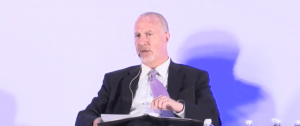
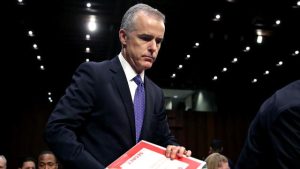
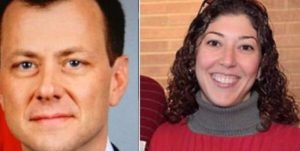
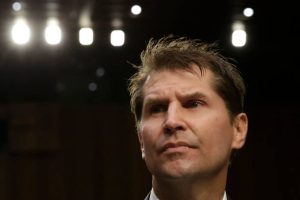
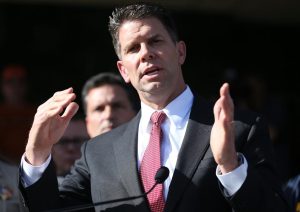
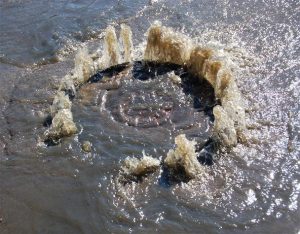



a

